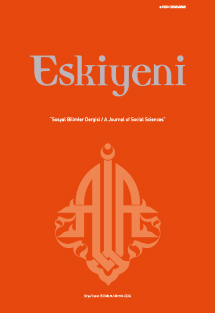Gazzâlî’ye Göre Âdetullah ile Sünnetullah Kavramlarının Anlamı ve Nedensellik
The Meaning and Causality of the Concepts Ādatullah and Sunnatullah, and Causality According to al-Ghazālī
Author(s): Selami YalçınSubject(s): Theology and Religion, Islam studies
Published by: Anadolu İlahiyat Akademisi
Keywords: Tafsir; al-Ghazali; Adatullah; Sunnatullah; Causality; Determinism; Kalam;
Summary/Abstract: One gets the impression that there is a contradiction between the meanings that al-Ghazālī attributes to the concepts of ādatullah and sunnatullah and what he says about causality in his book Tahāfut al-falāsifah and his statements in the Ihyā and some of his other books. In the article, first of all, the meanings of the concepts of ādatullah and sunnatullah were tried to be explained. The meanings attributed to these concepts by theology and tafsīr scholars who lived in the periods before al-Ghazālī were examined. The meanings of the concept of sunnatullah in the Qurʾān are briefly discussed. Later, the meanings that al-Ghazālī attributed to the concepts of ādetullah and sunnatullah in his works were grouped and analyzed. His thoughts on the relationship between cause and effect, absolute causality and the immutability of the sunnatullah have been tried to be conveyed. His views on the immutability of the sunnatullah are discussed. During the research, studies which focused on al-Ghazālī's ideas on causality were examined and it was seen that these studies focused on what he said in Tahāfut and rarely touched on his statements in Ihyā. For this reason, in this research, the author's thoughts on causality were tried to be explained by taking into account all his works. al-Ghazālī's thoughts on miracles, which were at the center of his debate with philosophers, were conveyed. As a result of the study, it was understood that the term "sunnatullah" was mentioned in the Qurʾān to express social laws and laws of nature. It has been determined that al-Ghazālī used the concepts of ādatullah and sunnatullah in his works in the sense of biology, physics, natural laws and laws related to human nature and social order. It has been seen that he accepts that there is a relationship between cause and effect, but unlike philosophers, he holds the opinion that it is not necessary for certain causes to produce certain results, and he opposes an understanding that would exclude God, the "doer", from being the power behind the causes. In addition, it was understood that he argued that consequences cannot occur without a reason, that God will not change the laws, that people should live their lives and seek sustenance by acting in accordance with them, and that behavior contrary to the law cannot be considered tawakkul.
Journal: Eskiyeni
- Issue Year: 2024
- Issue No: 52
- Page Range: 243-266
- Page Count: 24
- Language: Turkish

